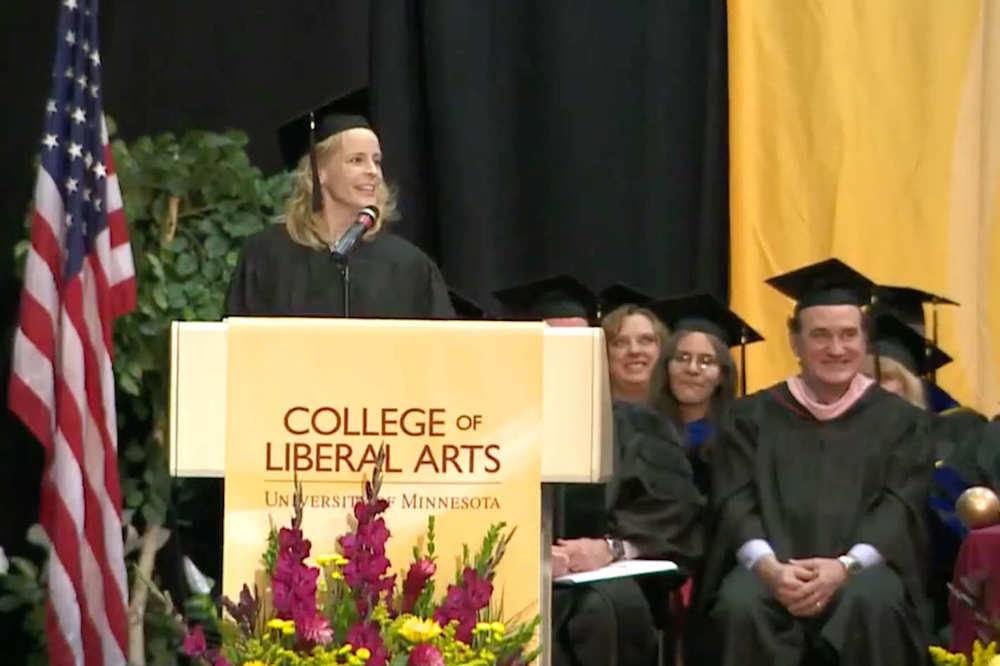Maria Bamford's Salary Negotiation Revealed and Three Scripts for No
"Let me start by talking about the elephant in the room at a liberal arts graduation ceremony, and that is MONEY."
"As a Minnesotan, I’m ashamed to admit that I love money. I love a fair exchange of goods and services. I love to buy things. I love to get paid. And also...I love full disclosure."
Comedian Maria Bamford gives us a hilariously honest master class in the art of salary negotiation, delivered in the form of a tell-all commencement speech.
She shares exactly how and for how much she negotiated her commencement speaking fee with University of Minnesota, College of Liberal Arts.
But get this - she was initially asked to speak for free (insert exasperated eye-roll here). Their line was, "As you can imagine, being a state-funded institution, we have to be careful about how we use our resources."
Her retort is something I'd like to get tattooed on my forehead:
"But I am a self-funded institution who needs to be careful regarding the use of my resources."
If you've ever been made to feel that an institution's needs are somehow more legitimate than yours, or if you've ever been asked to contribute your limited resource of time and energy for free - then you'd know what she's talking about.
Me too. As a speaker and negotiation workshop leader, this sort of thing happens to me all the time. Ironically, some of the most pro-women, pro-feminist organizations, the same groups that herald women's economic empowerment, often offer me compensation in compliments, not cash.
Compliments don't pay my rent, health insurance or grocery bills.
So how do you say no? How do you set boundaries around your limited resources?
In Maria Bamford's case, she heeds the advice, "Never say no without a number." She counteroffered the pro bono invitation with an ask for $20K (dang it, makes me proud).
The negotiated gross fee of $10K ("Gross is the disgusting amount you will never receive," she quips) nets her $5K, which at the end she gives away to a liberal arts grad with student debt. I love that she loves money, has the gumption to ask for more, the gall to tell us all about it and the generosity to give it away.
I've also negotiated for more with mixed results. Sometimes the organization is bootstrapped and actually has no money. Sometimes a simple "sorry, I can't" won't cut it, because there are relationships at stake, and I want to be diplomatic. Or sometimes I want to say yes, because the opportunity will give She Negotiates great exposure to a wider audience.
In which case, I use one of these three scripts:
1. Say yes and suggest trading things of value:
"This is a great idea, and how about we make this a fair exchange of value? I typically receive $X for my talks, and I'm open to being flexible if you would have my business featured on the front page of your association's magazine."
2. Say no and offer help:
"I appreciate you reaching out to me, but I'm unable to participate due to scheduling conflict. How about I reach out to my network and see if I can help you find someone else to speak at your event?"
3. Say no and assert your values:
"If I say yes to this, I wouldn't be honoring my commitment to spending evenings and weekends with my family / to cooking and eating clean for the benefit of my health / to dedicating my time to starting a side business. Sorry."
Flex your "no" muscle and be careful regarding the use of your limited resources.







